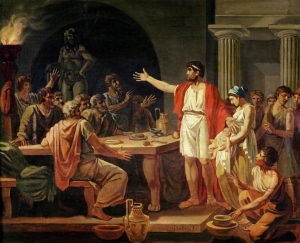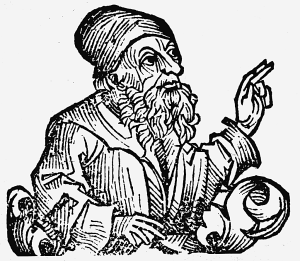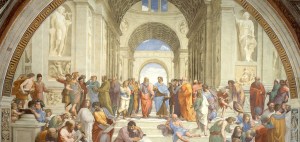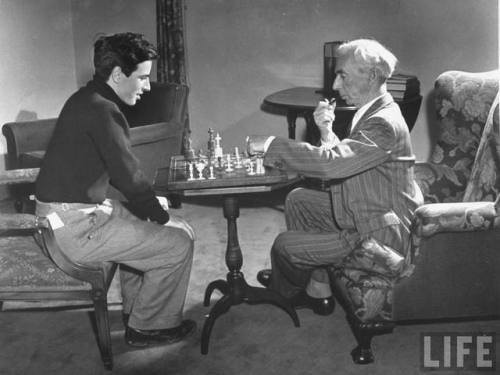#bertrand russell
“The infliction of cruelty with a good conscience is a delight to moralists. That is why they invented Hell.”— Bertrand Russell, Sceptical Essays
Wittgenstein Ph.D., Episode #9
(p.s: never put simply ‘whitehead’ into google image search :{ )
Post link
“There is but one truly serious philosophical problem and that is blowjobs.” - Camus. Probably.
Source:Existencial Comics
Post link
The Sources of Plato’s Opinions-Russell’s History of Western Philosophy, chapter by chapter- (13)

This is a short post, and in it Russell outlines the areas of Plato he is going to discuss, whilst also explaining the thoughts which influenced Plato’s personal philosophy.
He tells us that Plato was born 428/7 BCE in the early years of the Peloponnesian war. He came from an aristocratic family and despised democracy. There were two main reasons for this, the first of which is that he attributed…
Sparta- Russell’s History of Western Philosophy, chapter by chapter- (12)

Sparta had a profound influence on the subsequent philosophy of Greece through Plato and Aristotle, so Russell takes a chapter to explain their fascinating culture. We will see the politics of Sparta replicated in the Politics of Plato, and even as far in the future as Nietzsche’s thoughts on culture.
Helots
Sparta had no interest in being a part of Greek culture on the larger scale, they were…
Socrates- Russell’s History of Western Philosophy, chapter by chapter- (11)

Today we move on to a discussion of Socrates. Russell only focuses on him briefly because of the fact that we have so much historical uncertainty regarding him. This article will mostly focus on what we know of him through Plato and Xenophon. One interesting thing about the historicity of Socrates is that we can say that we either know very little about him or quite a lot. This is because there…
Protagoras- Russell’s History of Western Philosophy, chapter by chapter- (10)

This is the final chapter in the section on philosophers preceding Socrates, Plato, and Aristotle. Tomorrow we will begin with Socrates. In it is discussed Protagoras and the Sophists. The Sophists were a group of philosophers who taught their ideas and knowledge to people for a price. Protagoras was himself a Sophist. He was very popular for his wisdom and skill of acute logical thinking.
He was…
The Atomists- Russell’s History of Western Philosophy, chapter by chapter- (9)

The Atomists were a fascinating group of philosophers. We have seen the eminence of Greek scientists in various scientific discoveries in the past several chapters, but the Atomists are possibly the most surprising. Pertaining to their namesake, the Atomists built a science and philosophy around the positing of atoms to build up the world. The world was made from two things, atoms and void.
Russe…
Anaxagoras- Russell’s History of Western Philosophy, chapter by chapter- (8)

Today we have another short post, this time about Anaxagoras. Russell asserts his main importance as being the person who first introduced philosophy to Athens. He was a student of Anaximenes, and in his later life he was an influence on Socrates.
He was born in Clazomenae, a costal town of Ionia, around 500 BCE. He lived in Athens from 462 – 432 BCE, the golden age. It is believed that he was…
Athens in relation to culture- Russell’s History of Western Philosophy, chapter by chapter- (7)

This is a short chapter which discusses the reasons Athens became a more dominant force on the world stage. In the following chapters, we will see discussion shift almost entirely to the intellectual circle of Athenian culture.
Athens took over as the ‘producer of great men’ after defeating the Persians in conflict. They toppled Darius in 490 BCE, and then his son, Xerxes, in 480 BCE. Sparta was…
Empedocles- Russell’s History of Western Philosophy, chapter by chapter (6)

Empedocles represents the cusp of Greek scientific endeavour. He was a brilliant thinker in regards of his science, but his religious life was rather different. It is worth separating the two because of how at odds with each other they are.
He flourished around the date of 440BCE in Akragas. He was originally a successful politician, and also claimed to be a living God. He was later banished by…
Parmenides- Russell’s History of Western Philosophy, chapter by chapter- (5)

Life
Parmenides was born, it is thought, around 515 BCE in Elea. It was believed that an old Parmenides actually taught a young Socrates, although this is debated. In this article, we will look at his attempt to explain permanence in nature, and be introduced to an early problem in the philosophy of language.
Philosophy
The first real search for permanence was to be found with the endeavours of…
Heraclitus- Russell’s History of Western Philosophy, chapter by chapter (4)

Yesterday we looked at how Pythagoras sought to explain the world through numbers. Reducing things to numbers reduces them to unchanging facts, or at the very least, to unchanging patterns. Heraclitus believed that nothing ever stayed the same, and it is this which we shall look at today.
Background
Most of what we know of Heraclitus comes from Plato and Aristotle’s writings. We know that he was…
Pythagoras- Russell’s History of Western Philosophy, chapter by chapter- (3)

In this chapter Russell looks at Pythagoras. We all remember him from mathematics in school, but the influence he had was rather impressive.
Background
We have just looked at the intellectual climate of Miletus with Thales, Anaximenes and Anaximander. Pythagoras lived roughly during the same time. He was a citizen of Samos. Samos was a rival of Miletus in terms of trading, also trading in gold…
A History of Western Philosophy, chapter by chapter- (2) The Milesian School

In this chapter, Russell looks at the Milesian school. Miletus was important because it was a very successful commercial city and consequently helped migrate the ideas of Egypt and Babylon to Greece. Miletus was also trading with Lydia, with whom the Greeks made their wealth in silver and gold. Russell focuses on three thinkers; Thales, Anaximander, and Anaximenes.
Thales
Thales, as was mentioned…
A History of Western Philosophy, chapter by chapter- (1) The Pre-Socratics

In this series I will explain Bertrand Russell’s A History of Western Philosophy, chapter by chapter, in digestible pieces.
In this first chapter, Russell concerns himself with laying the foundations of Greek culture. This is integral to further discussion because many of the foundational aspects of early Greek culture persisted in, and influenced, the philosophy following it. Much influence can…
Bertrand Russell, Why I Am Not a Christian
“La preoccupazione è una forma di paura e tutte le forme di paura producono stanchezza”
- Bertrand Russell






















